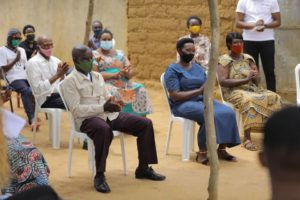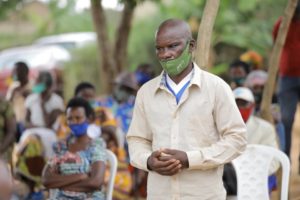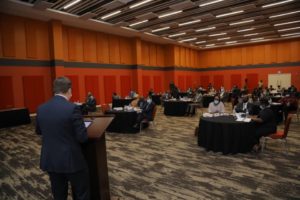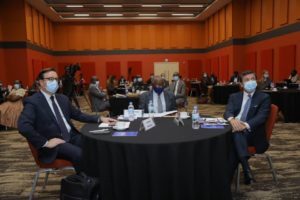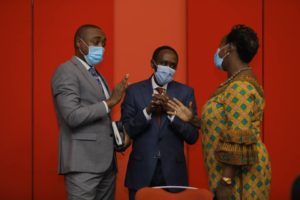Healing the invisible wounds of violence in Rwanda
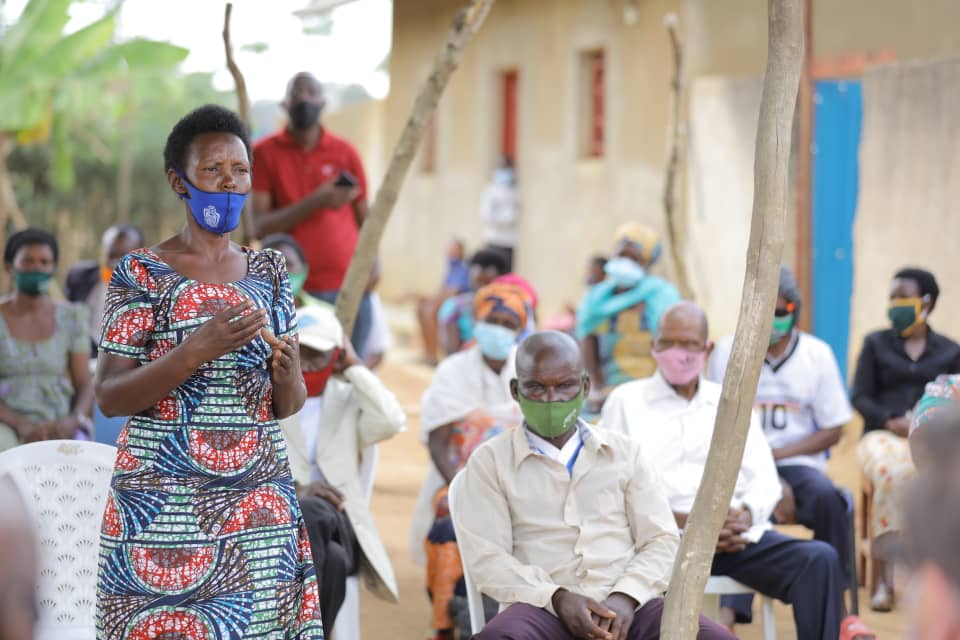
Linda* is a mother and wife who lost her family during the 1994 Genocide against the Tutsi in Rwanda. She was 16 years old, when armed men attacked her home in Bugesera, a town in Eastern Rwanda, and brutally killed her parents, siblings and friends.
“I lost all. It was hard to move on. I was so much wounded; my heart was bleeding,” she said.
When the killings stopped, Linda struggled for years to live with the harsh invisible wounds of seeing her father, mother and brothers murdered by neighbours.
“Imagine seeing the wife of someone who killed your family, take food to him in prison while you are starving with nothing to eat,” she said.
The traumatic experience left wounds too deep for Linda to heal on her own. She was not alone to suffer some form of physical or emotional hardship because of the 1994 Genocide against the Tutsi in Rwanda.
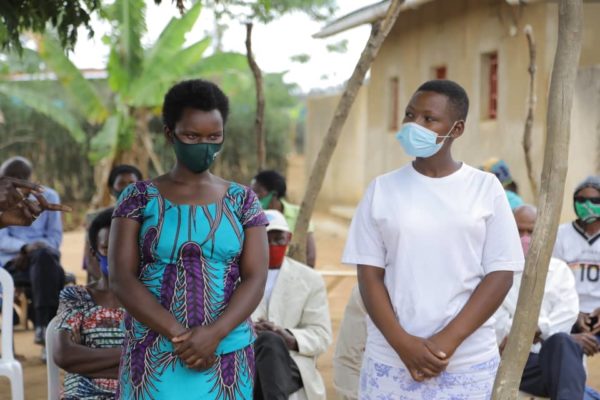
Members of the reconciliation village sharing their experiences. Photo credit: Interpeace
She eventually got the courage to overcome her trauma after participating in a societal healing programme at the reconciliation village in Bugesera, established by Prison Fellowship Rwanda (PFR). However, it was not an easy journey for her to heal from her distress and extreme paranoia.
“First, we were not happy when the perpetrators confessed and were released from prison. We thought they will come and finish us,” said Linda. “When we were brought together, I was afraid. In this reconciliation village, survivors and genocide perpetrators collaborated in bricklaying. I often had fears that in the process, one of them [genocide perpetrators] will hit me with a hoe from behind,” explained Linda. “But with time I have forgiven them. No one forced me to forgive. Despite what they did, reconciliation is possible. We are the story,” she stated.
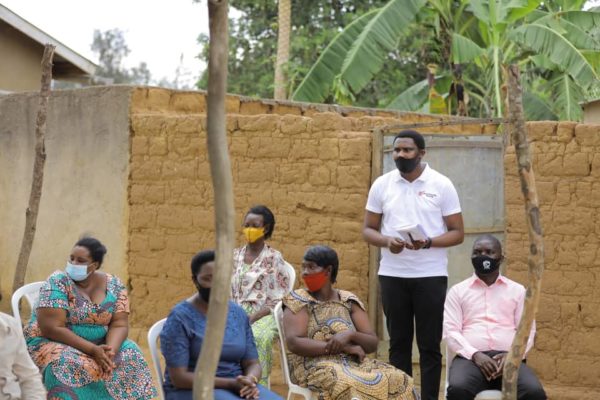
Members of the reconciliation village sharing their experiences. Photo credit: Interpeace
The reconciliation village hosts survivors of the genocide, perpetrators of the genocide, returnees from abroad who fled the genocide and vulnerable people from different communities.
“It was hard to look eye to eye with someone who killed my family,” said Linda.
On his part, Jean Pierre*, an ex-genocide prisoner said:
“I was scared to face the families of people I killed during the genocide. But with counseling by Prison Fellowship Rwanda, I decided to open up and confess what I did. I also confessed to my wife, to whom I had lied all along that I was unjustly imprisoned. I told her the truth that I killed our neighbours. She was shocked. My wife and children were traumatised after learning the truth’’.
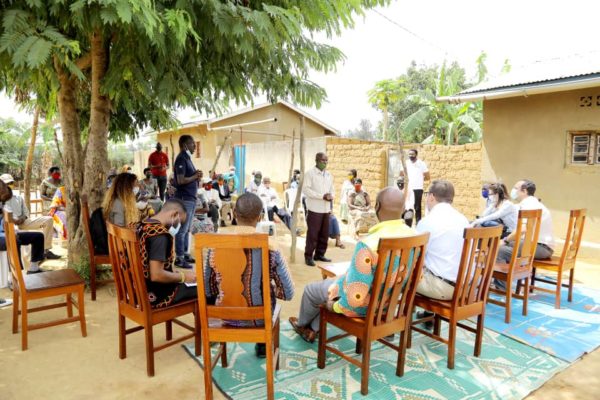
Members of the reconciliation village sharing their experiences. Photo credit: Interpeace
A new programme to foster societal healing
The adverse impact of the genocide still weighs heavily on Rwandan society today. The country still grapples with a burden of trauma and mental health conditions. The release of some perpetrators of the genocide who have completed their prison terms has made the situation even more difficult.
Interpeace has commenced a new, innovative and holistic trauma healing programme in Rwanda to expand investment in mental health, address trauma and enhance social cohesion. The programme called “Reinforcing community capacity for social cohesion through societal trauma healing”, was launched in Kigali, on Thursday, 15 October 2020.
- Programme launch in Kigali.
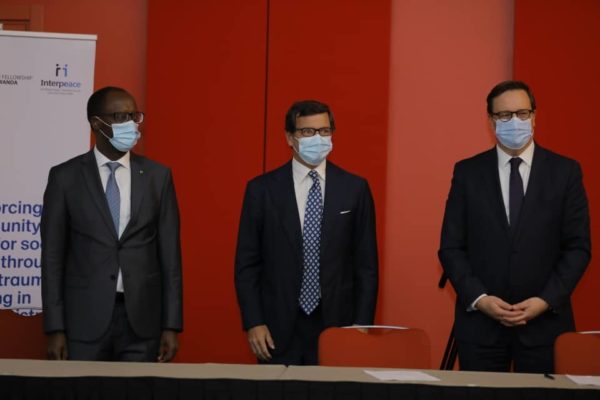
Executive Secretary of NURC, Fidèle Ndayisaba, EU Ambassador in Rwanda, Nicola Bellomo and President of Interpeace, Scott M. Weber. Photo credit: Interpeace
Through a partnership with the National Unity and Reconciliation Commission (NURC) and Prison Fellowship Rwanda, this programme will contribute to Rwanda’s efforts to address the invisible but deeply-felt wounds, and complement the remarkable investment and progress already made by the government of Rwanda and local civil society organisations towards trauma healing, social cohesion and improved livelihoods.
“This programme which proposes innovative and holistic approaches that simultaneously promote mental health, social cohesion and support sustainable livelihoods is a new contribution to our reconciliation journey,” said Fidèle Ndayisaba, Executive Secretary of NURC. He said “there’s a very close relation between mental health, reconciliation and economic well-being. We expect added value from this programme.”
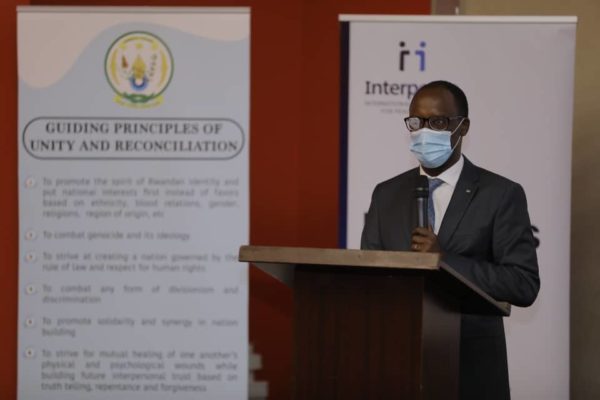
Fidèle Ndayisaba, Executive Secretary of NURC. Photo credit: Interpeace
The programme will enhance capacities to address trauma and foster societal healing in Rwanda. As the country prepares to release over 20,000 prisoners in the next few years - amidst the prevailing trauma among survivors - the programme will support individuals grappling with anxiety and trauma, and the host communities to ensure effective reintegration.
“After 26 years of being in prison, they have not witnessed the tremendous changes that the Rwandan society has gone through. They need to be able to be brought into the reintegration process in communities,” said Scott Weber, President of Interpeace. “Prisoners need to become productive members of the society once again. Everyone hopes that they don’t go back into prisons through new crimes,” he added.
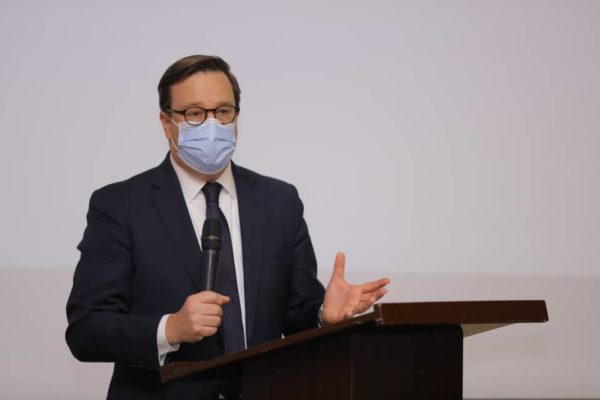
Scott M. Weber, President of Interpeace. Photo credit: Interpeace
This trauma healing programme is even more important for families with children experiencing adverse intergenerational trauma, where young people who did not live through the genocide still have post-traumatic stress disorders or other significant negative experiences.
“Reconciliation is a journey,” said Bishop John Rucyahana, Chair of the Board of Directors of Prison Fellowship Rwanda. “Two heads are better than one,” he said, as he welcomed the partnership with Interpeace to keep pace with the scale of need.
The scale of need across Rwanda shows how important it is for Interpeace, NURC and PFR to come together and support Rwandans to care for each other’s mental well-being.
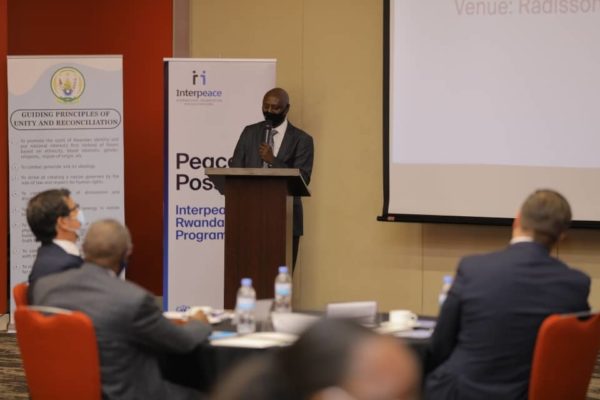
Bishop John Rucyahana, Chair of the Board of Directors of Prison Fellowship Rwanda. Photo credit: Interpeace
The programme is funded by the European Union (EU) and will be piloted in Bugesera District in the next 18 months. Bugesera and Ngoma are among the Districts hardest hit by the Genocide Against the Tutsi.
“We are particularly happy to support this initiative given our long involvement in Rwanda’s post-genocide reconciliation and peacebuilding efforts,” said Nicola Bellomo, EU Ambassador in Rwanda.
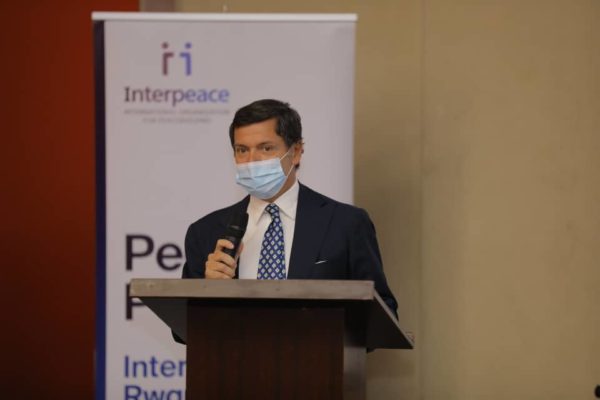
Nicola Bellomo, EU Ambassador in Rwanda. Photo credit: Interpeace
The Rwanda Mental Health Household Survey conducted in 2018 revealed high prevalence of mental health disorders countrywide, particularly among the survivors of genocide; among whom Post-traumatic stress disorder (PTSD) cases were found in more than 50%. Interpeace and partners hope to scale this societal healing programme to all 30 Districts in Rwanda in the next five years.
- Programme launch in Kigali.
- Photo credit: Interpeace
*Names changed for privacy reasons
